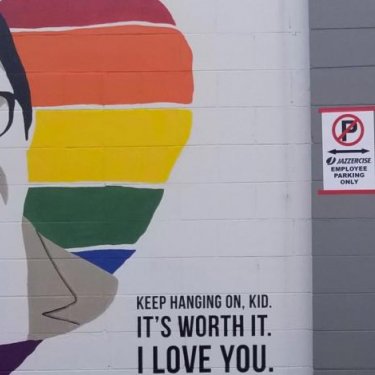Northern Ireland: RSF renews calls for justice following third anniversary of Lyra McKee’s murder

This week marked the third anniversary of the killing of journalist Lyra McKee, which represented a low point for press freedom in the UK. Reporters Without Borders (RSF) renews the call for justice for McKee and demands greater steps to improve the climate for safety of journalists in Northern Ireland, which remains the most dangerous place for journalists to do their jobs in the UK.
Three years on, still no one has been brought to trial for the murder of Lyra McKee, who was killed while observing rioting in the Creggan area of Derry, Northern Ireland, on 18 April 2019. However, numerous arrests have been made in connection with the case. Paul McIntyre was charged with McKee’s murder and related offences in February 2020 and is currently out on bail, awaiting trial. In October 2021, eight men were charged – three with the murder itself, and five with rioting and associated offences. A further round of six arrests was made in March 2022.
“Our thoughts are with Lyra McKee’s family, friends and colleagues on this tragic anniversary. Despite the further arrests that have been made over the past year, it is deeply unsettling that three years on Lyra’s family is still fighting for justice. While we remember Lyra, we also shine light on the many journalists still courageously working in Northern Ireland despite facing significant risks. Concrete measures are urgently needed to ensure they are able to do their jobs safely,”said Azzurra Moores, RSF’s UK Campaigns Officer.
In a letter sent to the Police Service Northern Ireland (PSNI), RSF has again shared a series of recommendations needed to improve the climate for the safety of journalists. As a fellow member of the National Committee for the Safety of Journalists, RSF has called for the PSNI to be better equipped to adequately respond to issues, including by providing training focused on the threats journalists face in the course of their work, and establishing a Safety of Journalists liaison officer within the PSNI. RSF will continue to advocate for implementation of these recommendations.
The letter also called for the need for justice for the historical murder of journalist Martin O’Hagan in September 2001. Following claims made in a BBC Spotlight documentary prompting legal action to be taken against the PSNI by O’Hagan’s family, RSF has renewed calls for an independent investigation to be opened into his murder, in light of new evidence that the police failed to act on crucial information prior to his murder.
RSF also raised the case of journalist Patricia Devlin, who in November 2020 was forced into hiding after she received threats to her life. In September 2021, Devlin’s complaint was upheld against the PSNI for failing to properly investigate an online threat to her child. RSF emphasises that ending violence against journalists in Northern Ireland will require addressing both historical impunity and active acts - and threats - of violence.
The UK is ranked 33rd out of 180 countries in RSF’s 2021 World Press Freedom Index.
